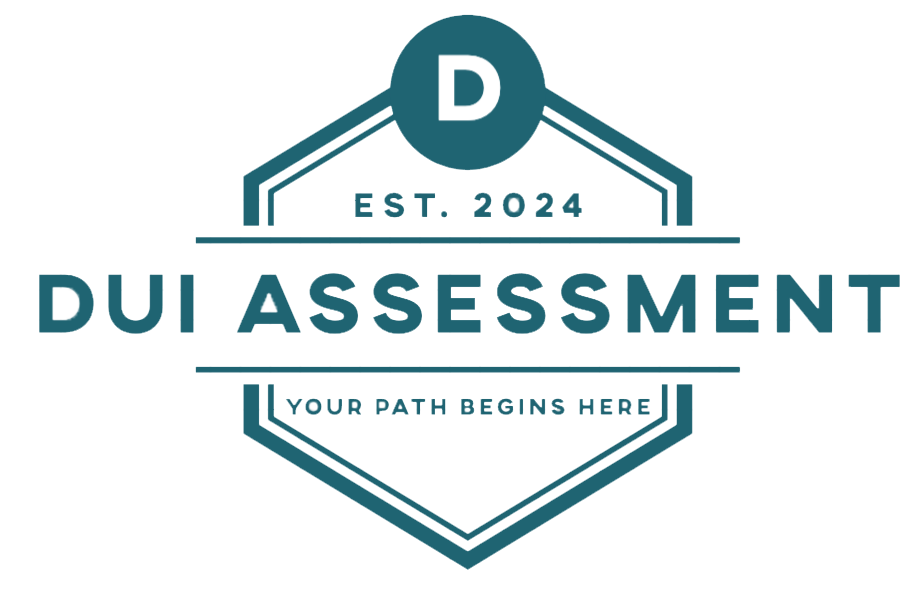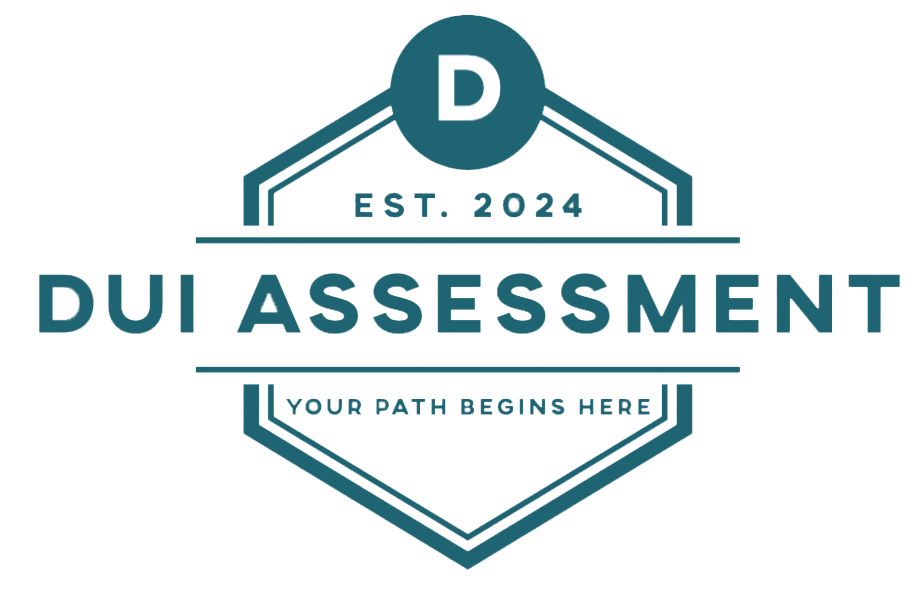Facing a DUI charge can be overwhelming, stressful, and even frightening. You may be uncertain about what lies ahead, how the legal system works, and how your life will change. One of the most critical steps in the DUI legal process is Assessing DUI through a formal evaluation. This assessment has significant implications for your case, your sentencing, and your future.
At DUI Assessment, we specialize in helping individuals navigate the aftermath of a DUI. Our role is not only to provide accurate and compassionate evaluations but to support you or your loved one in getting back on your feet. In this guide, we’ll walk you through exactly what happens after assessing DUI, what it means for your case, and how to use this moment as a powerful opportunity for growth and recovery.
Understanding DUI Assessments
Before we dive into the aftermath, it’s important to understand what assessing DUI actually entails.
When someone is charged with a DUI (Driving Under the Influence), many jurisdictions require a substance use evaluation or DUI assessment. The goal is to determine if alcohol or drug misuse contributed to the offense, and whether intervention, education, or treatment is necessary.
What Is Involved in Assessing DUI?
The process usually includes:
- A clinical interview with a licensed counselor
- Standardized substance use screening tools
- Review of criminal and driving history
- Analysis of blood alcohol content (BAC) at the time of arrest
- Assessment of past or current substance use patterns
- Mental health and behavioral health evaluation
This assessment typically results in a written report submitted to the court and possibly to your attorney. Based on the results, recommendations may include:
- No further action
- Educational DUI classes
- Outpatient treatment
- Intensive outpatient or inpatient rehab
- Probation with monitoring
- Continued counseling or therapy
What Happens Immediately After a DUI Assessment?
Once the assessment is completed, here’s what typically happens next:
1. Results Sent to the Court
The evaluator will prepare a report summarizing their findings and recommendations. This report is submitted to the court as part of the pre-sentencing process. In some cases, the report may also be shared with the Department of Motor Vehicles (DMV) or a probation officer.
The report can influence the judge’s decision regarding penalties and sentencing. A well-documented and professionally conducted assessment can show the court that you’re taking the charge seriously and willing to engage in self-improvement.
2. Recommendations Become Legal Requirements
The court often incorporates the recommendations from the DUI assessment into the final sentence. For example, if the assessment suggests a 12-hour alcohol education course, the judge may make that a condition of your probation.
Failing to follow through on these recommendations can result in legal consequences, including:
- Revoked probation
- Additional fines
- Jail time
- Extended license suspension
This is why it’s essential to take the process seriously and follow through with all recommendations.
3. Sentencing Considerations
Assessing DUI plays a direct role in shaping the outcome of your case. Judges often look favorably on individuals who undergo a DUI assessment early and proactively complete recommended programs before sentencing. It demonstrates remorse, accountability, and a willingness to change.
How Assessing DUI Affects Different Aspects of Your Case
A DUI assessment doesn’t just impact your legal case—it affects many areas of your life. Here’s a breakdown of how:
1. Legal Consequences
Judges use the assessment to tailor sentencing that matches your level of risk. If the assessment indicates low risk, you may receive lighter penalties such as:
- Short-term license suspension
- Reduced probation
- Lower fines
If the assessment indicates high risk (e.g., repeat offenses, high BAC, substance dependency), the court may impose stricter penalties:
- Mandatory treatment
- Ignition interlock device
- Longer probation or jail time
- Substance testing
This is why it’s vital to complete the assessment with honesty and openness—it allows professionals to guide you toward the right interventions.
2. Driver’s License Reinstatement
In many states, the DMV requires proof of a completed DUI assessment and follow-through on treatment or education before reinstating a suspended license.
For example:
- First-time offenders may need to complete a DUI class and submit proof.
- Repeat offenders often need to complete a treatment program, install an ignition interlock, and undergo monitoring.
If you avoid or delay the assessment, your driving privileges may remain suspended indefinitely.
3. Insurance Rates
Insurance companies often review court records and DMV updates. A DUI on your record will almost certainly increase your premiums, but proof that you’ve undergone an assessment and completed treatment may help demonstrate that you’re taking steps toward responsible behavior.
Some insurers may offer lower risk tiers to those who complete DUI education and show long-term sobriety.
4. Employment Impacts
Employers, especially those in transportation, healthcare, education, or government roles, may view a DUI conviction as a red flag. However, being able to show that you’ve taken corrective action—like completing a professional DUI assessment and attending recommended programs—can demonstrate integrity and accountability.
If you’re job hunting after a DUI, having documentation of your recovery plan can help minimize employer concerns.
5. Family and Personal Life
Let’s not forget the emotional and relational consequences of a DUI. Trust may be strained, relationships tested, and self-esteem impacted. The process of assessing DUI is also an opportunity for growth.
Therapy, counseling, and education programs—often recommended during assessments—can help:
- Rebuild family trust
- Establish healthy boundaries
- Improve communication
- Address underlying substance use or mental health issues
At DUI Assessment, we understand that you’re more than your charge. We treat every client with compassion, dignity, and respect.
What to Expect During Your DUI Assessment With Us
At DUI Assessment, our process is professional, confidential, and supportive. We’re here to help—not to judge.
Here’s what you can expect when scheduling a DUI assessment:
Step 1: Schedule Your Appointment
We offer flexible scheduling with evening and weekend availability. Appointments can be made in person or online (telehealth), depending on your location and legal requirements.
Step 2: Complete Intake Forms
You’ll be asked to provide:
- Arrest details
- BAC levels (if known)
- Driving record
- Criminal history
- Substance use history
This helps our licensed counselors prepare for your evaluation.
Step 3: One-on-One Interview
This is a confidential session with a certified substance use professional. You’ll discuss:
- Circumstances around your arrest
- Personal and family history of substance use
- Current habits or struggles
- Mental health and lifestyle
We create a safe space where honesty is encouraged. The more accurate the information, the more helpful our recommendations can be—for you and your future.
Step 4: Assessment Tools
We use validated screening tools such as the SASSI (Substance Abuse Subtle Screening Inventory) or ASAM (American Society of Addiction Medicine) criteria to determine risk levels and appropriate interventions.
Step 5: Report and Recommendations
Within a few days, we provide a written report that includes:
- Risk level classification
- Educational or treatment recommendations
- Summary of findings
- Compliance guidance for court
We’ll also help coordinate with your lawyer, probation officer, or judge if needed.
How to Move Forward After a DUI
After assessing DUI, many clients feel overwhelmed—but it’s also a powerful turning point. You’ve acknowledged a problem or risk, and now you have the opportunity to do something about it.
Here are a few ways to take control of your next steps:
1. Complete Recommended Programs Promptly
Completing recommended programs promptly after a DUI assessment is not only a crucial step towards personal recovery and legal compliance but also a strategic move that can significantly impact the outcome of your case. Judges often regard defendants who take immediate and proactive steps to engage with educational or treatment programs more favorably, recognizing their commitment to rectify their mistakes and improve their behavior. This demonstration of responsibility and willingness to change can influence the court’s decision, potentially leading to reduced sentences or the elimination of additional penalties. It’s an opportunity for individuals to show they are taking their situation seriously, understanding the gravity of their actions, and are committed to making positive changes. By prioritizing these recommendations, you not only adhere to legal requirements but also embark on a path toward personal growth and rehabilitation, which is invaluable in transforming this challenging experience into a catalyst for change.
2. Maintain Sobriety
Maintaining sobriety is a crucial step for anyone looking to navigate the complexities of legal issues, especially those related to substance use. Engaging with support systems like Alcoholics Anonymous (AA), seeking therapy, or finding solace in peer support groups can be transformative on this journey. Staying substance-free not only mitigates the risk of further legal entanglements but also significantly enhances your overall health and well-being. Sobriety brings clarity of mind, allowing individuals to better confront and manage the challenges ahead. It fosters resilience, enabling them to face their legal battles with strength and determination. Moreover, demonstrating a committed effort to remain sober can positively impact how courts view one’s commitment to change, potentially influencing outcomes in their favor. Beyond the legal benefits, sobriety improves physical health, mental health, and personal relationships, offering a renewed sense of purpose and direction. Embracing sobriety is embracing an opportunity for a fresh start—a chance to rebuild one’s life on a foundation of wellness and self-improvement.
3. Keep Good Records
Keeping meticulous records is an essential strategy for navigating the complexities of legal and administrative systems, especially for individuals in the process of rebuilding their lives post-rehabilitation. Holding onto receipts, certificates of completion, and letters from counselors not only serves as tangible proof of one’s commitment to sobriety and personal development but also plays a critical role during court appearances, probation check-ins, and DMV processes. These documents can significantly influence the decisions of judges, probation officers, and other officials by demonstrating concrete steps taken towards rehabilitation and responsibility. Such records act as milestones on the journey to recovery, underscoring the efforts made to maintain sobriety, attend therapy sessions, or complete educational courses aimed at personal growth. In this way, they provide not just legal leverage but also a narrative of transformation that can be crucial in securing a more favorable outcome in various legal and bureaucratic contexts.
4. Seek Support
Seeking support is an essential step in the journey towards recovery and rehabilitation. You don’t have to face this path alone; there are numerous support groups, counseling services, and rehab programs designed to offer you the guidance, understanding, and accountability necessary for a successful recovery. These resources can provide both emotional and practical assistance, creating a community of individuals who understand what you’re going through and can share their experiences and strategies for overcoming similar challenges. Engaging with these support systems can significantly enhance your resilience, give you access to valuable insights and coping mechanisms, and reinforce your commitment to change. Whether it’s attending regular meetings, participating in therapy sessions, or enrolling in a structured rehab program, taking advantage of these supports can make a profound difference in your ability to navigate the complexities of recovery with confidence and hope.
5. Reflect and Rebuild
Reflecting on and rebuilding after such a pivotal moment can catalyze a profound transformation in one’s life. A DUI incident, while undeniably challenging, often serves as a wake-up call, compelling individuals to reassess their goals, lifestyle, and priorities with newfound clarity. This introspection can pave the way for meaningful and lasting change, guiding people towards healthier choices and more fulfilling paths. It encourages a deeper understanding of personal values and the impact of actions on oneself and others. By embracing this opportunity for self-improvement, many find that they are able to emerge from the experience stronger, more focused, and with a renewed sense of purpose. The journey towards recovery is not just about overcoming a mistake; it’s an invitation to redefine your life’s direction and embrace the potential for personal growth and transformation.
Why Choose DUI Assessment?
We’re more than just a place to get a piece of paper for court. At DUI Assessment, we believe in second chances, healing, and transformation.
Here’s why individuals across the region trust us:
- Licensed, experienced staff with deep knowledge of DUI law and treatment
- Fast turnaround for time-sensitive court cases
- Compassionate, judgment-free environment
- Support through the entire process, from assessment to completion
- Connections to quality local treatment providers, education programs, and legal support
Whether you’re a first-time offender or dealing with a more complex legal situation, we’re here for you.
Frequently Asked Questions About Assessing DUI
- How long does a DUI assessment take?
Most assessments take between 60 to 90 minutes. Follow-up reports are typically available within 1 to 3 business days.
- Will this go on my record?
The assessment itself is confidential, but the report may be submitted to the court or your attorney as part of the legal process.
- What if I don’t agree with the assessment?
You can request a second opinion from another qualified provider. However, the court may still consider the original assessment.
- Can I do the assessment online?
Yes, many assessments can be completed via telehealth, depending on court rules and your location.
- What happens if I skip the assessment?
Skipping or refusing to complete an assessment can result in additional charges, delayed court proceedings, or harsher sentencing.
Take the First Step Today
If you or someone you love is facing a DUI, it’s time to take action. The process of assessing DUI is not just a legal step—it’s a life-changing opportunity.
At DUI Assessment, we’re here for the aftermath. We’re here for the healing. And most importantly, we’re here for you.
Schedule your confidential DUI assessment today and start your journey back to stability, accountability, and peace of mind.
Let’s turn this challenge into a new beginning—together.



